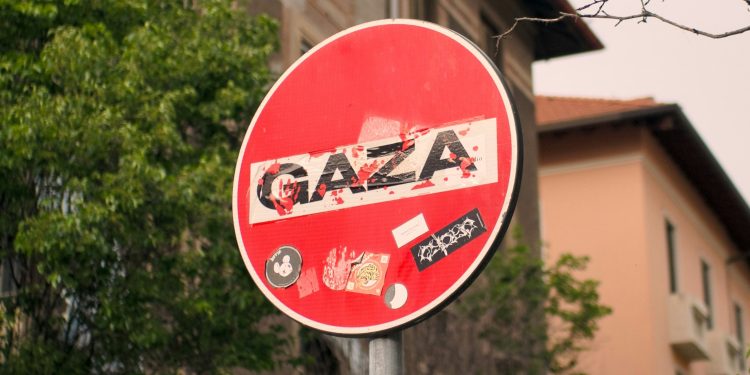At the United Nations on Wednesday, a dramatic divide emerged over the crisis in Gaza. Fourteen out of the fifteen Security Council members declared that the famine gripping the enclave is a “manmade crisis,” accusing Israel of using hunger as a weapon of war. Only the United States refused to endorse the statement, a move that immediately drew global attention.
The joint statement by council members called for an immediate and permanent ceasefire, the release of hostages, a surge of humanitarian aid, and the lifting of all Israeli restrictions on food and medical deliveries. “Famine in Gaza must be stopped immediately. Time is of the essence,” the statement read.
The global hunger monitor, Integrated Food Security Phase Classification (IPC), confirmed last week that 514,000 people in Gaza are already facing famine, nearly a quarter of the population. That number could rise to 641,000 by the end of September unless access to food and aid changes drastically.

US Defends Israel, Questions Famine Report
Israel has rejected the famine assessment, calling it biased and based on flawed data. Officials demanded that the IPC retract its report, arguing that it relied too heavily on figures from Hamas while ignoring new shipments of food into Gaza.
The United States quickly backed Israel’s position. Acting U.S. Ambassador to the UN, Dorothy Shea, openly dismissed the IPC findings, telling the Security Council the report “doesn’t pass the test.” While admitting hunger exists in Gaza, she claimed the famine classification was exaggerated. “We all recognize that hunger is a real issue in Gaza and that there are significant humanitarian needs which must be met. Addressing those needs is a priority for the United States,” Shea said.
For many observers, Washington’s remarks showed a familiar pattern: siding with Israel even as international consensus blames its military campaign for worsening Gaza’s humanitarian collapse.
UN vs US: A Deepening Divide
The gulf between the U.S. and the rest of the world has rarely been so stark. On one side, nearly every member of the UN Security Council insists that starvation in Gaza is a manmade disaster caused by Israel’s blockade and bombing campaign. On the other, the U.S. continues to shield its ally, questioning data that other nations treat as credible evidence of a humanitarian crime.
This split exposes the isolation of Washington on the global stage. For the 14 council members, using starvation as a weapon is a violation of international humanitarian law. For the U.S., the priority remains defending Israel’s narrative, even if that means rejecting a famine declaration that aid agencies insist is undeniable.
Bottom Line
The debate over Gaza starvation has now become a test of credibility between the United States and the rest of the world. The UN calls it a manmade famine; the U.S. calls it fake. For Palestinians facing empty shelves and rising deaths from malnutrition, the argument in New York means little. What it does reveal, however, is that Washington is increasingly alone in its defense of Israel, even as famine spreads through Gaza and international outrage grows louder.

















